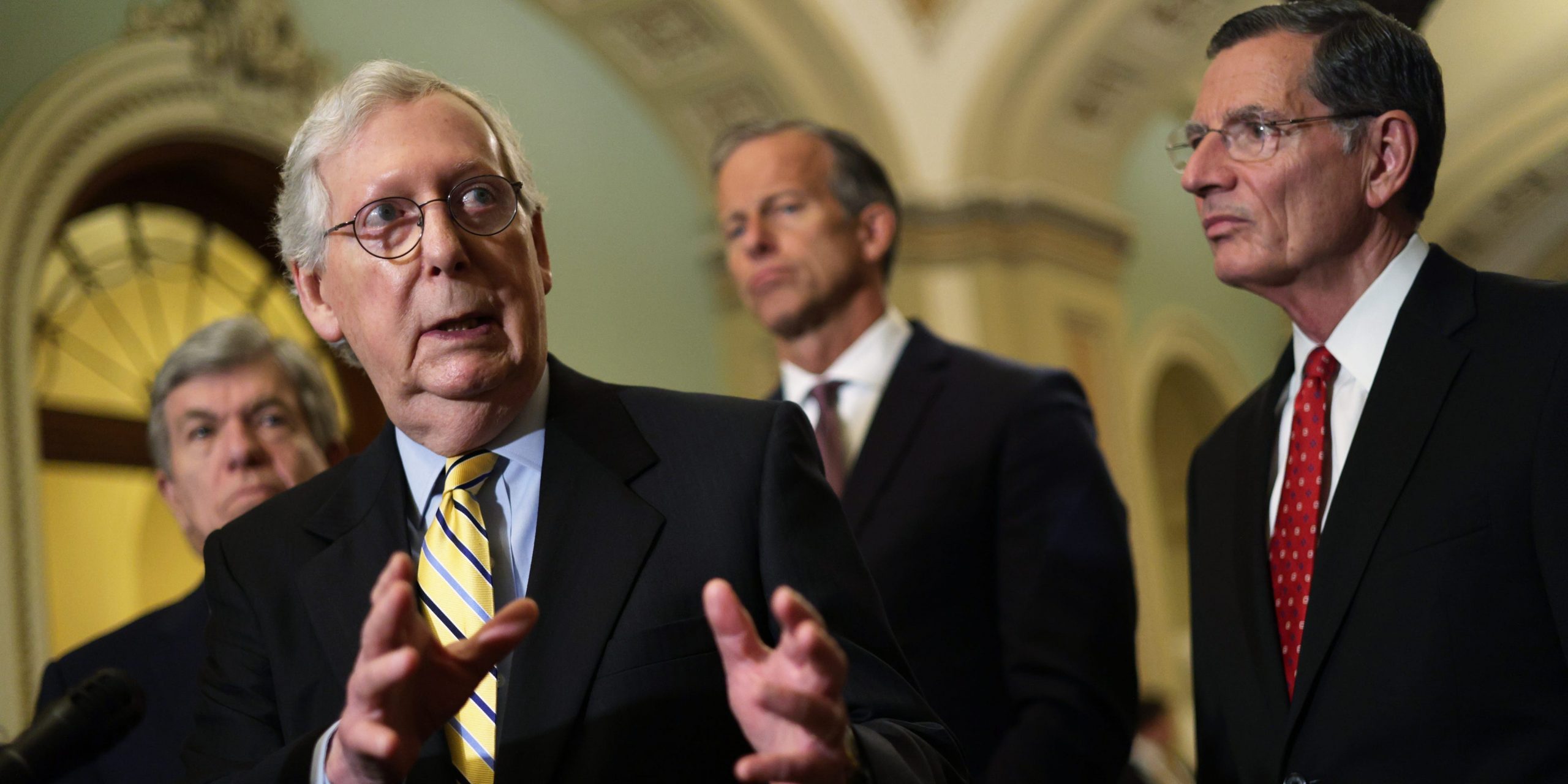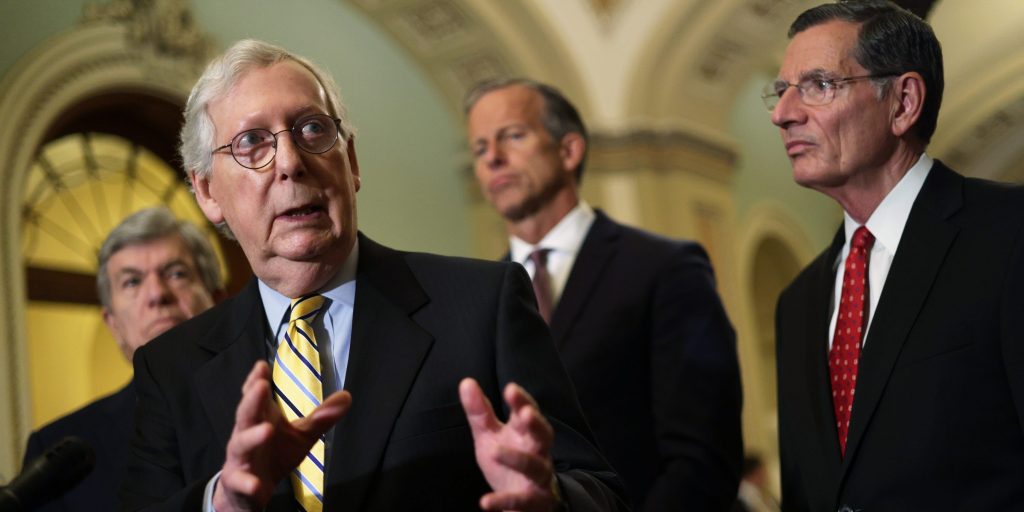
- Democrats and Republicans are extremely split over how they see the US economy.
- The GOP's pessimism is worse than the depths of the Great Recession, while Democrats are mostly cheery.
- Republicans see inflation as a major risk, but their general disapproval contrasts with strong hiring and spending in 2021.
Americans' spending is surging, GDP has fully rebounded, and the labor market's recovery is accelerating. Why are Republicans so upset?
The US is firmly in recovery mode, but Americans' views of the economy are extremely split. Democrats are largely optimistic as President Joe Biden makes progress toward passing his economic agenda. Yet Republicans are increasingly pessimistic about the economy even as it barrels toward a complete recovery.
Incredibly, GOP voters currently view the economy in a worse light than they did during the worst of the Great Recession. The University of Michigan's index of consumer sentiment shows a mile-wide gap between Republicans' and Democrats' views of the economy. The partisan differences were also larger than differences across income, age, and education, Richard Curtin, chief economist at the University of Michigan's Surveys of Consumers, said.
As the chart shows, partisan political splits in economic sentiment are not new. Democrats and Republicans alike are more likely to say the economy is doing well when a president from their party is in power. And Americans of all political stripes have seen a decline in confidence over the last few months, as inflation heated up and the Delta wave slowed a recovery that had been red-hot up till then.
The partisan split is also nearing historic intensity. The gap between Democrats' and Republicans' sentiments reached 49.8 points in November, according to the report. That's the widest since August 2018, when the GOP was coasting on its 2017 tax cuts and on the verge of losing its majority in the House.
When the economy was performing well and the COVID crisis hadn't yet materialized in 2018, the sentiments were a complete flip of the situation today. Republicans were hugely positive toward the economy, while Democrats viewed President Donald Trump's policies as detrimental to the US.
Just as Democrats didn't credit Trump for piloting the longest expansion in history, Republicans aren't giving Biden kudos for leading the recovery.
But the economy is currently booming, and while the gap might look like mere partisan grumbling, it can have serious effects on the recovery. The GOP's dismal sentiments could lead to diminished spending. That would starve the economy of much-needed activity. Higher inflation already risks cutting spending, and a sudden pullback would halt the incomplete recovery.
The partisan gap is no clearer than in Washington
Price growth has become the risk du jour in Washington, DC.
After months of arguing higher inflation would only be temporary, the White House has shifted to acknowledging persistent inflation and trying to solve the issue. Biden said on Friday that the bipartisan $1 trillion infrastructure bill can "lower inflationary pressures in our economy" as long as its funds are spent effectively.
Republicans, meanwhile, are using inflation as a political cudgel against Democrats' midterm hopes. The GOP has blamed their counterparts for rising prices through much of the year and frequently linked inflation to Biden's spending plans.
They sound gleeful that they get to run against Biden on the issue. Soaring prices are a "gold mine" for Republicans as they look to wrest control of the House and the Senate, Sen. Rick Scott of Florida recently told The Wall Street Journal.
Despite the party's inflation fears, inflation itself is expected to be short-lived. Federal Reserve Chair Jerome Powell said earlier in November that price growth should cool "by the second or third quarter." Prices have risen faster than expected, he said, but as supply chains heal, the inflation situation should look much more normal.
By that point, though, the partisan split on views of the economy could have big implications for which party controls Congress, and whose legislative vision on the economy gets realized.
